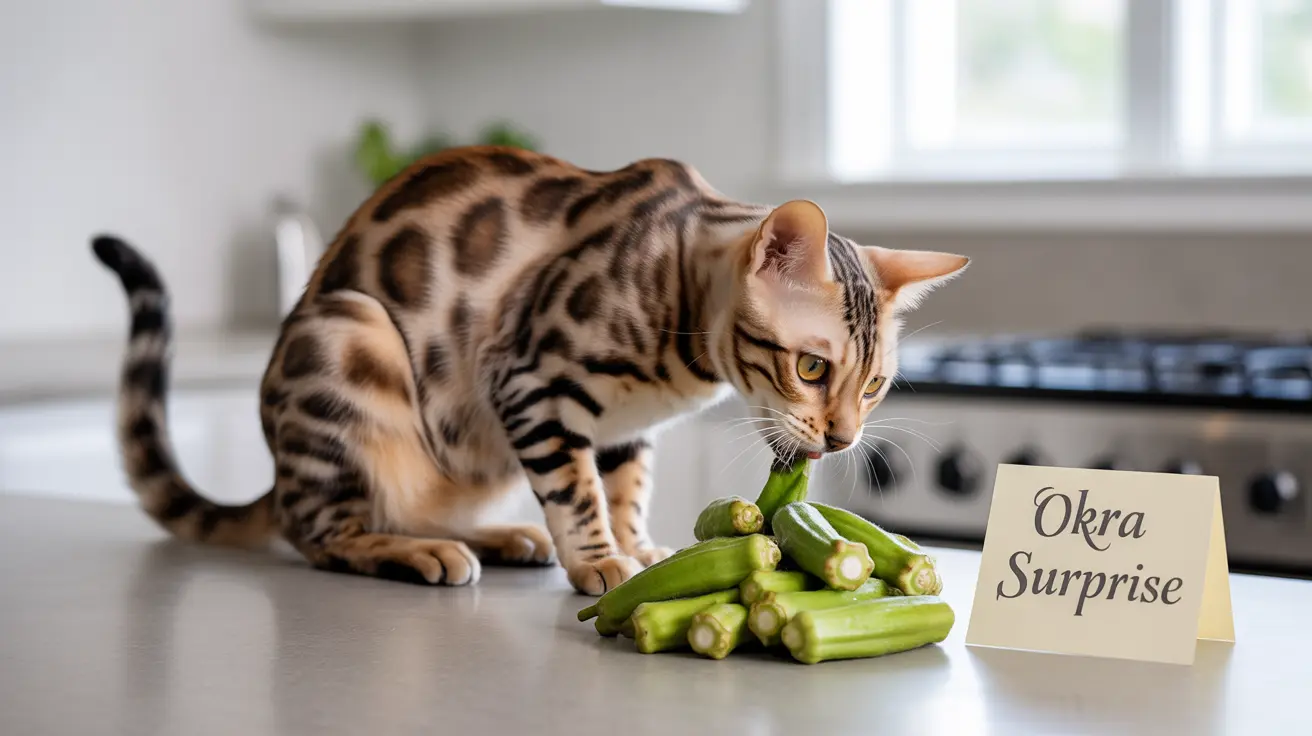If you've ever wondered about sharing your vegetables with your feline friend, you might have asked yourself, "Can cats eat okra?" While this green vegetable isn't toxic to cats, there are important considerations to keep in mind before offering it to your pet.
In this comprehensive guide, we'll explore everything you need to know about cats and okra, including safety considerations, potential benefits, and proper serving recommendations.
Understanding Cats' Dietary Needs
Cats are obligate carnivores, which means their bodies are designed to derive nutrition primarily from meat sources. Unlike humans, they don't require vegetables in their diet and lack the digestive enzymes needed to process plant matter efficiently.
Is Okra Safe for Cats?
While okra isn't toxic to cats, it's important to understand that moderation is key. Small amounts of plain, cooked okra are generally safe for cats to consume. However, the vegetable contains solanine, a naturally occurring compound that can cause digestive issues if consumed in large quantities.
Potential Risks of Feeding Okra to Cats
Several risks are associated with feeding okra to cats:
- Digestive upset from excessive fiber
- Potential choking hazards from fibrous texture
- Gastrointestinal discomfort
- Possible blockages if consumed in large pieces
Nutritional Value and Benefits
While okra is packed with nutrients beneficial to humans, cats process these nutrients differently. The vegetable contains:
- Vitamins C, K, and B complex
- Minerals like magnesium and potassium
- Dietary fiber
- Antioxidants
How to Safely Serve Okra to Cats
If you decide to offer okra to your cat, follow these guidelines:
- Cook the okra thoroughly by steaming or boiling
- Cut into small, manageable pieces
- Serve plain without seasonings or oils
- Start with tiny portions to test tolerance
- Monitor for any adverse reactions
When to Avoid Giving Okra to Cats
Certain preparations of okra should never be given to cats:
- Pickled okra (contains harmful preservatives and spices)
- Fried okra (too much oil and breading)
- Seasoned okra (spices can be harmful)
- Raw okra (difficult to digest)
Frequently Asked Questions
Is okra safe for cats to eat, and how much can they have?
Yes, cats can safely eat small amounts of plain, cooked okra. A maximum serving size of ¼ cup is recommended, but it's best to offer much less as an occasional treat.
Can feeding okra to cats cause digestive problems or poisoning?
While okra isn't toxic, overconsumption can lead to digestive issues like vomiting and diarrhea. Solanine poisoning is possible but rare with normal portions.
Should cats eat raw or cooked okra for better digestion?
Cooked okra is safer and easier for cats to digest. Always steam or boil the okra without seasonings before serving.
What are the nutritional benefits of okra for cats, if any?
While okra contains various nutrients, cats don't efficiently process plant-based nutrients. The main benefit might be the small amount of fiber it provides.
Can cats eat pickled or spiced okra safely?
No, cats should never eat pickled or spiced okra as these preparations often contain ingredients harmful to cats, such as garlic, salt, and preservatives.
Conclusion
While cats can eat okra in small amounts, it's not a necessary addition to their diet. If you choose to offer okra to your cat, do so sparingly and only as an occasional treat. Always consult with your veterinarian before making any significant changes to your cat's diet.






